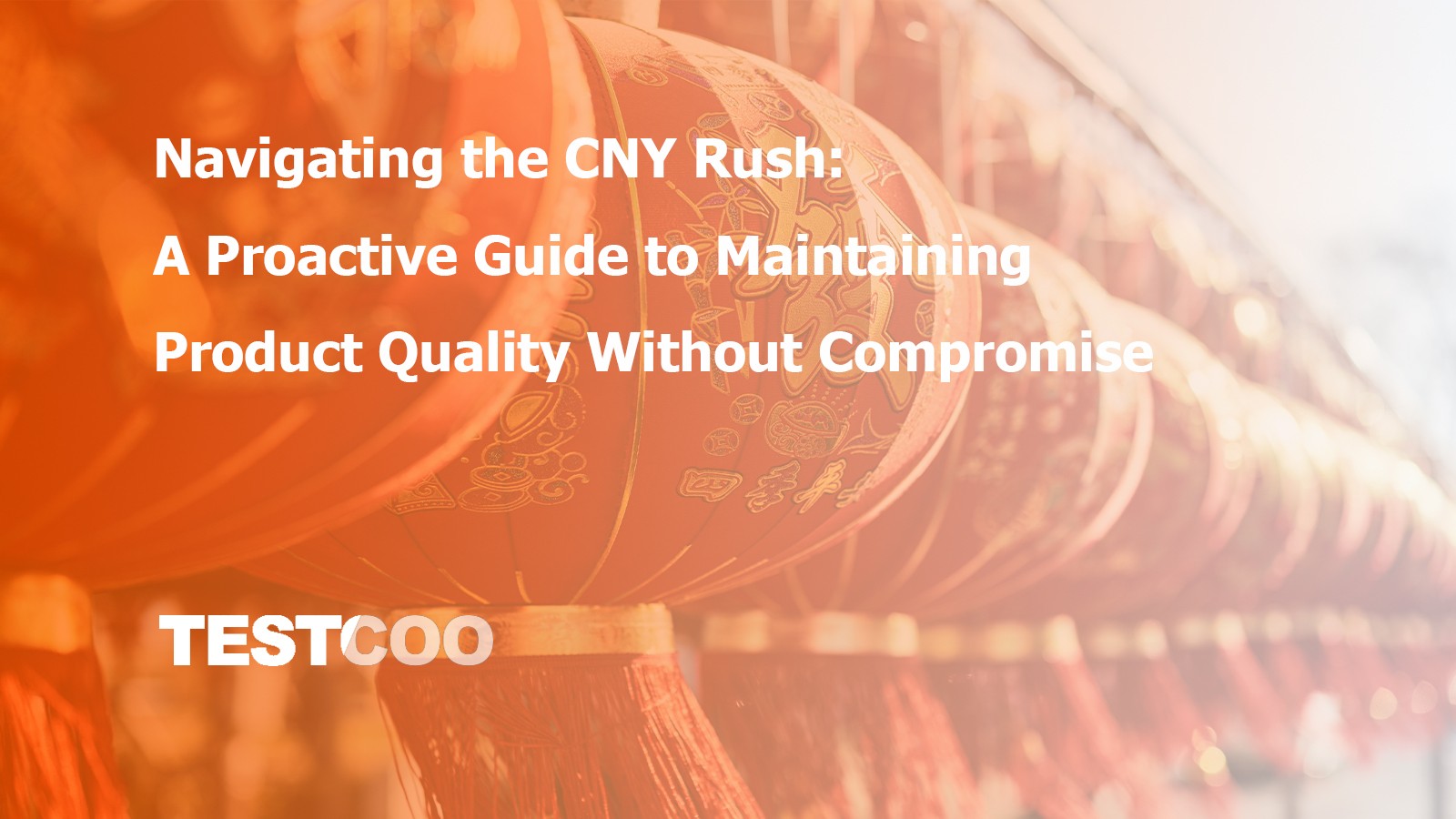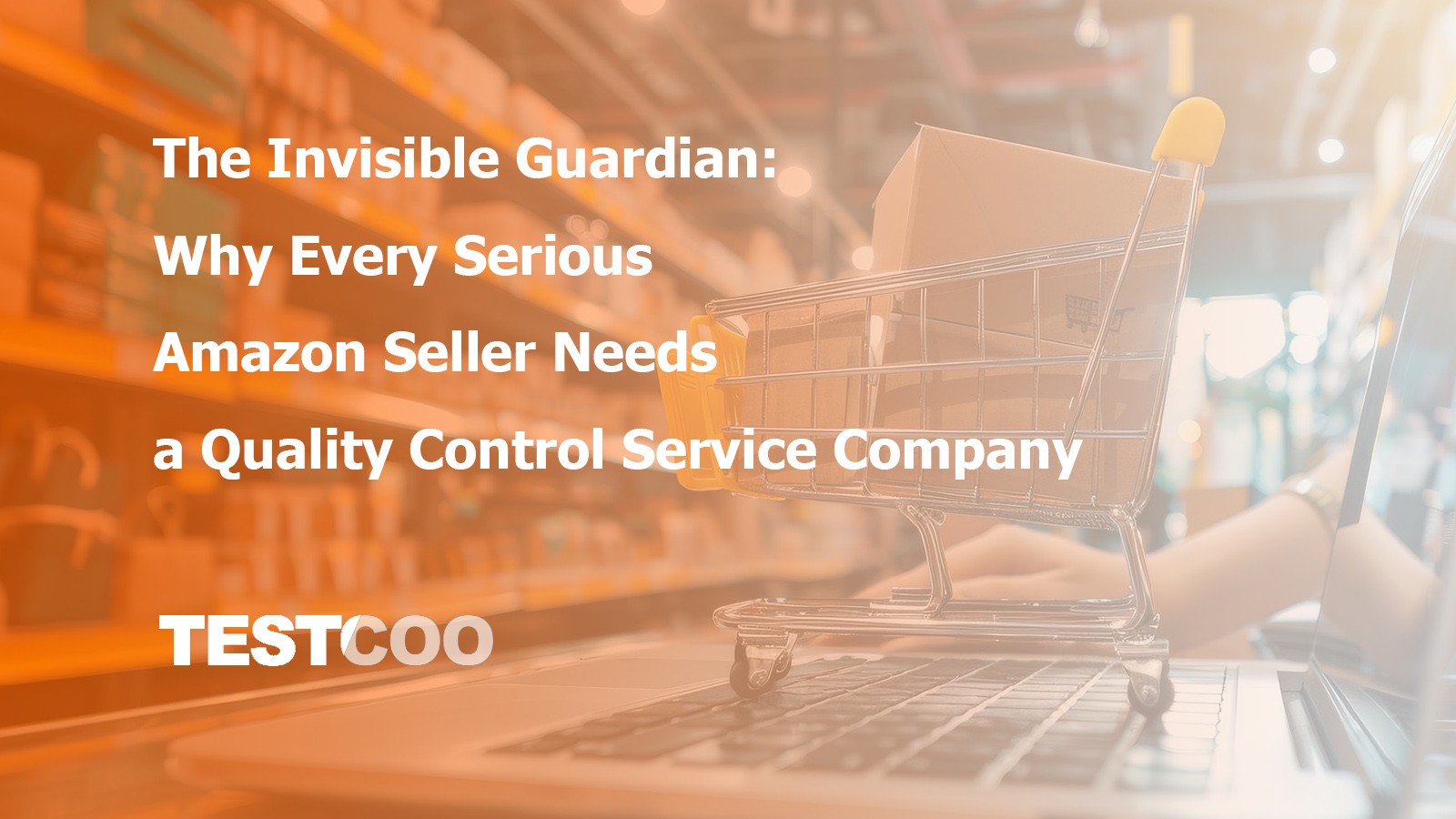Unleashing the Power of Tech in QC & Inspection: A Deep Dive with Testcoo

In today's fast-paced global marketplace, quality control (QC) and inspection processes have become the linchpin for businesses aiming to thrive. The old-school, manual-intensive methods of QC and inspection are rapidly becoming obsolete, overshadowed by the wave of technological advancements. Technology is redefining the way companies ensure product quality, meet regulatory requirements and enhance customer satisfaction.
Testcoo is at the forefront of this technological revolution in the QC and inspection domains. It serves as a comprehensive resource hub, providing a wealth of information on the latest technological trends, best practices and real-world case studies related to QC and inspection. Whether you are a seasoned quality control professional looking to upgrade your skills or a business owner seeking to optimize your quality management processes, Testcoo offers valuable insights that can drive your business forward in this technology-driven era.
The Landscape of QC & Inspection in the Traditional Era
Challenges in Conventional Methods
In the traditional era of quality control and inspection, reliance on manual labor resulted in a host of challenges. One of the most prominent issues is the high susceptibility to human error. Human inspectors, regardless of experienceienced, are prone to making mistakes. For example, in the textile industry, when inspecting fabrics for defects such as holes, stains or uneven weaves, human inspectors may miss minor flaws due to fatigue or distractions.
Data recording in traditional QC and inspection is also a cumbersome task. Previously, inspectors had to manually document inspection results on paper forms or enter them into basic spreadsheets. This not only consumed additional time but also increased the risk of data-entry errors. For instance, in the food and beverage industry, when recording information about product quality, such as ingredient levels, expiration dates and packaging integrity, manual data entry can lead to incorrect information being recorded which can have serious consequences for product safety and compliance.
The Limitations of Manual Labor
Over-reliance on manual labor in QC and inspection has far-reaching limitations. The time cost associated with manual inspection is exorbitant. As mentioned earlier, the slow pace of human inspection meant that large-scale production had to be slowed down to accommodate the quality control process. This was not only a problem for the immediate production cycle but also affected a company's ability to meet market demands in a timely way.
Scalability is another area where manual labor falls short. As businesses grew and production volumes increased, it became increasingly difficult to hire and train enough qualified human inspectors to meet the demand for quality control. In the consumer electronics industry, for example, with the rise in demand for smartphones and tablets, companies have found it challenging to expand their manual inspection teams rapidly. This led to either rushed inspections, which increased the likelihood of defective products reaching the market or bottlenecks in the production process as products awaited inspection.
Furthermore, manual inspection lacks the ability to provide in-depth and accurate data analysis. Human inspectors can only make subjective judgments based on their experience and training and it is nearly impossible for them to analyze large volumes of inspection data to identify trends or patterns. In contrast, in industries where data-driven decision-making is crucial, such as the medical device industry, this lack of data analysis capability could be a significant handicap.
Read More: Manual vs. Automated Inspection: Striking the Right Balance for Quality and Throughput
Tech - Driven Transformation: A Paradigm Shift
Key Technological Innovations Reshaping the Field
In the modern landscape of QC and inspection, several key technological innovations are at the forefront of this transformation.
Big Data Analytics: Big data has emerged as a game-changer in quality control. In industries such as electronics manufacturing, companies collect vast amounts of data from various sources during the production process. This includes data from sensors on manufacturing equipment, test results from different production stages and customer feedback data. A leading smartphone manufacturer, for instance, uses big data analytics to analyze the performance data of thousands of smartphones during the testing phase of the product. By aggregating and analyzing these data, they can identify patterns that may indicate potential quality issues. For example, they might notice that a particular batch of smartphones has a higher rate of battery-related problems and through further analysis, trace it back to a specific component supplier or a manufacturing process step.
Read More: The Impact of Big Data on Quality Assurance in Steel Manufacturing
Artificial Intelligence and Machine Learning: AI and machine learning algorithms are revolutionizing defect detection. In the automotive parts manufacturing industry, AI-powered systems can analyze images of engine components. These systems are trained on large datasets of both defective and non-defective parts. Using deep learning algorithms, AI can quickly identify even the most subtle defects.
Internet of Things (IoT): IoT technology has enabled the connection of various devices and sensors in QC and inspection processes. In the food and beverage industry, IoT-enabled sensors can be placed throughout the production facility, on storage tanks and even on packaging equipment. These sensors can monitor parameters such as temperature, humidity and pressure in real time. For example, a brewery uses IoT sensors to monitor fermentation. The sensors send data to a central system and if the temperature or pressure deviates from the optimal range, the system can automatically adjust the equipment settings or send an alert to the quality-control team. This ensures that beer is brewed under the right conditions, maintaining consistent quality.
Read More: Tapping into the IoT for Smarter Solutions in the Beer Industry
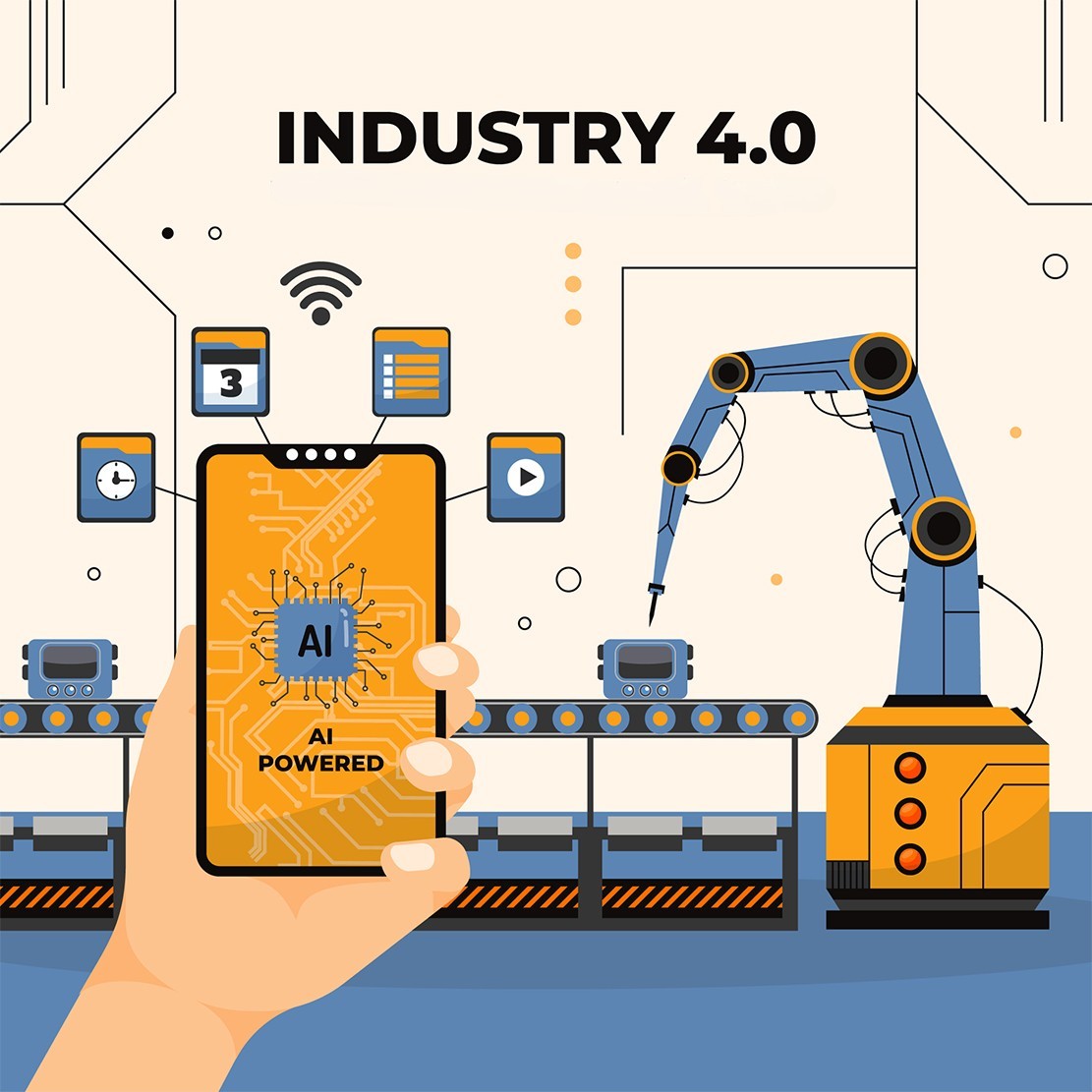
How These Technologies Overcome Traditional Hurdles
These emerging technologies overcome the limitations of traditional QC and inspection methods in several ways.
Enhanced Accuracy: Traditional manual inspection is highly prone to human error. The accuracy of defect detection has increased exponentially with the use of AI and machine learning. In the textile industry, where detecting small fabric defects is a challenge for human inspectors, AI-based image recognition systems can accurately identify flaws such as holes, stains and uneven weaves.
Faster Detection: The speed of inspection has been greatly improved. In the past, the inspection of a single complex mechanical part could take hours of manual labor. Now, with the help of automated inspection systems powered by AI and high-speed sensors, the same inspection can be completed in a matter of minutes.
Real-time monitoring: IoT-enabled devices allow real-time monitoring of the production process. This means that quality control issues can be detected and addressed immediately rather than waiting for a batch of products to be completed and then inspected. In a pharmaceutical manufacturing plant, IoT sensors can monitor the purity and concentration of chemicals in real time during the drug-making process. If any deviation from the quality standards is detected, the production process can be halted and corrective actions can be taken.
Testcoo: At the Forefront of the Transformation
An Overview of Testcoo's Services
Testcoo has firmly established itself as a leading figure in the global supply chain quality assurance field. It offers a comprehensive suite of services that are essential for businesses aiming to maintain high-quality standards.
Testcoo provides a wide range of inspection services. For instance, in the area of product inspection, it conducts Initial Production Check (IPC), which are crucial for catching any potential issues at the start of the production process. By examining raw materials, product prototypes and production plans, Testcoo ensures that production is set on the right track. During Production Check (DUPRO) are another key service. During this stage, Testcoo's inspectors monitor the production process when a certain percentage of products are completed. This allows for the early detection of any emerging quality problems, such as inconsistent manufacturing processes or the use of substandard components. Final production inspections, also known as pre-shipment inspections, are the last line of defense before products are shipped to customers. Testcoo's inspectors thoroughly check the quality, quantity, packaging and labeling of products to ensure that they meet the client's specifications and all relevant regulatory requirements.
In addition to product inspection, Testcoo also offers factory audits. These audits assess various aspects of a factory's operations, including its quality management system, production capacity and compliance with social and environmental standards. For example, when evaluating a factory's quality management system, Testcoo examines how the factory establishes quality control procedures, trains its employees and conducts internal quality checks. By providing detailed reports on these audits, Testcoo helps businesses make informed decisions regarding their suppliers and partners.
Incorporating Tech into Testcoo's Operations
Testcoo has been at the forefront of integrating technology into its operations to optimize its service delivery. One of the most notable technological integrations is its user-friendly online platform, which allows clients to place orders with just a few clicks. The online one-click ordering system simplifies the process, eliminating the need for time-consuming phone calls or emails to request inspection services.
Upon receiving an order, Testcoo's intelligent system springs into action. It uses advanced algorithms to match order requirements with the most suitable inspectors from its extensive network. These algorithms consider factors such as the inspector's location, expertise in a specific product category and availability. For example, if a client requires an inspection of a batch of electronic products in a particular region, the system will quickly identify and assign an inspector who is not only in the vicinity but also has prior experience in inspecting electronics.
Once the inspection is completed, clients can expect to receive their reports promptly. The Testcoo system enables instant report generation and delivery. Inspectors use mobile devices equipped with specialized software to record their findings during inspections. These data are then automatically transmitted to the central system, where they are processed and transformed into a detailed and easy-to-understand report. The client can access this report through an online platform, allowing for quick decision-making regarding the product quality and whether to proceed with the shipment or take corrective actions.
Real World Examples of Tech - Enabled Success on Testcoo
A prominent case of Testcoo’s technology-enabled success involves a major international clothing brand. The brand sourced its products from multiple factories across Asia and faced challenges in maintaining consistent quality across all its suppliers. Testcoo was engaged to conduct regular inspections of the products.
Testcoo inspectors used mobile devices with high-resolution cameras and image-recognition software during the inspections. This technology allows for the rapid and accurate identification of fabric defects, stitching irregularities and color-matching issues. For example, image-recognition software can detect even the slightest variation in fabric patterns, which would be difficult for human inspectors to notice without the aid of technology.
The data collected during these inspections were immediately uploaded to Testcoo's cloud-based system. Using big data analytics, Testcoo identified trends and common issues among different factories. It was discovered that a particular factory had a high rate of stitching defects. Based on this analysis, Testcoo provided the brand with detailed reports and recommendations for improvement.
Automated testing equipment was used to perform a series of comprehensive tests on the smartphones, including battery life, signal strength and touch screen responsiveness tests. The results of these tests were integrated into Testcoo's quality management system, which provided the electronics company with real-time insights into the production process. Thanks to Testcoo’s technology-driven inspection services, the company was able to identify and resolve several potential issues before the smartphones were mass-produced, ensuring a successful product launch.

The Future Outlook: What Lies Ahead
Predictions for Further Tech - Driven Developments in QC & Inspection
In the realm of data analytics, even more intelligent algorithms can be expected. These algorithms will not only be better at detecting defects but also at predicting them before their occurrence. Machine learning algorithms will continue to evolve and become more adept at handling complex, multi-dimensional data. In the pharmaceutical industry, for instance, advanced algorithms can analyze data from various sources, such as raw material quality, production process variables and environmental conditions during manufacturing. By doing so, they can predict potential quality issues in drug batches, allowing manufacturers to take preventive measures and avoid costly recall.
Automation in QC and inspection will reach new heights in the future. Robotic inspection systems will become more common, especially in hazardous or hard-to-reach areas. In the oil and gas industry, robots can be used to inspect pipelines and storage tanks, thereby reducing the risk to human inspectors. These robots will be equipped with a combination of sensors, cameras and AI-powered software to perform comprehensive inspections and provide real-time data on the condition of the infrastructure.
How Testcoo Plans to Stay Ahead of the Curve
Testcoo is acutely aware of the need to stay at the forefront of technological advancements to continue providing top-notch services. To achieve this, Testcoo is committed to continuous innovation. It will invest heavily in research and development to explore new technologies and their applications in the QC and inspection fields. For example, Testcoo may collaborate with technology startups and research institutions to pilot-test emerging technologies, such as quantum-based sensors, for detecting minute defects in electronic components.
Technology upgrades are another crucial aspect of Testcoo's strategy. The company regularly updates its inspection equipment and software to incorporate the latest technological features. This includes upgrading its existing AI-based inspection systems to use the most advanced machine-learning algorithms. By doing so, Testcoo can improve the accuracy and speed of its inspections, providing clients with reliable and timely results.
Free Sample Report Performance Quality Control
Download a sample report to keep control of your supply chain!
Featured Articles
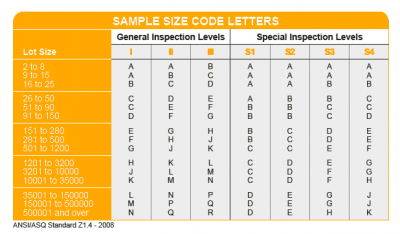 AQL Table | How to Read It
AQL Table | How to Read It TOP 10 Common Defects in Garments Quality Inspection
TOP 10 Common Defects in Garments Quality Inspection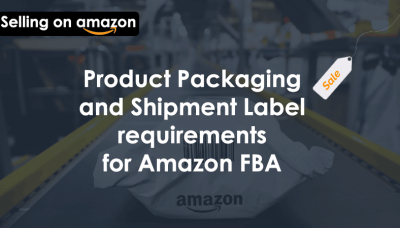 Product Packaging and Shipment Label requirements for Amazon FBA
Product Packaging and Shipment Label requirements for Amazon FBA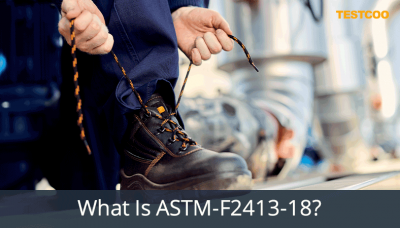 What Is ASTM-F2413-18? Protective Footwear Standard
What Is ASTM-F2413-18? Protective Footwear Standard How to Conduct Third-Party Quality Control Inspections for Electric Scooters
How to Conduct Third-Party Quality Control Inspections for Electric Scooters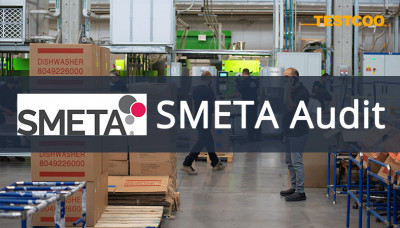 SMETA Audit-What is SMETA Audit?
SMETA Audit-What is SMETA Audit?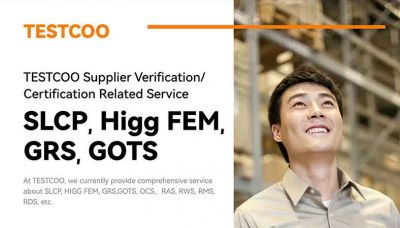 TESTCOO Supplier Verification/Certification Service SLCP, Higg FEM, GRS, GOTS
TESTCOO Supplier Verification/Certification Service SLCP, Higg FEM, GRS, GOTS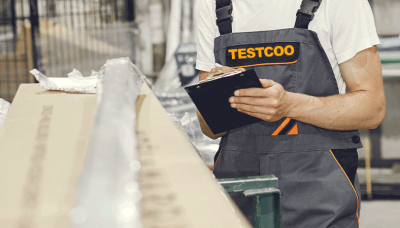 Quality Control Inspection Company in China
Quality Control Inspection Company in China What is Quality Inspection? A Complete Guide
What is Quality Inspection? A Complete Guide Guidelines for Product Inspection in India
Guidelines for Product Inspection in India
Category
- Production Inspection Service
- Factory Audit
- Softline Inspection
- Hardline Inspection
- Electrics Inspection
- Certification
- Checklist
- Manufacturers
- Quality Assurance Basics
- Products Recall
- AQL
- Guidence and Standard
- News
- Supplier Management
- Amazon
- Protective Equipment
- e-commerce quality control
- Indian Manufacturing
- Soft Goods Quality Control
- Supply Chain Management
- Supply Chain Resilience
- E-Commerce Quality Control
- ISO 2859
- Supply Chain Optimization
- Garment Industry
- Higg Index

